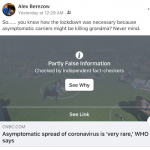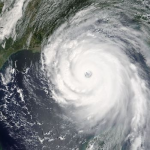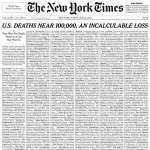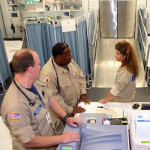Should Facebook be in the business of "debunking" news and scientific data when events are rapidly changing? What's true today may be declared false tomorrow, only to be declared true again a week later. Furthermore, does Facebook have the expertise to do so?
coronavirus
As an anti-coronavirus therapy, Remdesivir has been rather disappointing. That's primarily because the drug is given intravenously to those who are already very ill with COVID-19. But what would happen if the drug could be delivered directly to the lungs, to prevent severe disease? Gilead is giving it a shot. Here are some of the pros and cons of that approach.
We tend to overlook how natural disasters like the coronavirus pandemic shape human behavior. Maybe that should change.
We're social animals, and we want to socialize. We're also lazy, and we want to do whatever is easiest or most convenient. Those two facts about human nature, far more than the coronavirus, will shape our future.
Infectious disease models can also describe riots. The spread of coronavirus and violent protests share many features in common, shedding at least some light on the coming summer of discontent.
People are hungry for information about the coronavirus. But are some media outlets exploiting the situation to promote themselves?
Currently, COVID-19 vaccines are all the rage. Expectations are not only high, they are too high. ACSH friend, and former trustee, Dr. Paul Offit gives us a much-needed reality check. A vaccine, especially a very effective one, is unlikely to be in the cards anytime soon. Although it is always better to prevent an infection than treat one, antiviral drugs are likely to be the tools to control coronavirus well before a vaccine appears.Here's how Dr. Offit sees this playing out.
The COVID-19 lockdown is responsible for both the loss of economic activity and human lives. Two independent groups of researchers concluded that the lockdown may be costing more lives than it saves.
American culture, specifically our disdainful attitude toward expertise and leadership, is not conducive to making improvements to public health policy. Don't expect many changes in response to the coronavirus pandemic.
Stop me if you heard this one: Fourteen dermatologists walk into a bar... (Actually, it was 8, and 6 other scientists, walked into a February meeting in Germany.) At least 13 (maybe 14) walked out with a coronavirus infection. How did they manage this? Plus a hilarious Oliver North quote, a woefully amateurish food review, and some awful puns. Feel free to add your own.
Somewhere along the way, our achievable goal of "flattening the curve" for COVID-19 has mutated into "finding a cure," which is perhaps an impossible one. Public health and economic policy must be based on reality, not starry-eyed wish-making. Otherwise, people's lives and livelihoods are in grave danger.
Dr. Michael Osterholm, ACSH advisor and infectious disease epidemiologist, has co-authored a report on the coronavirus, drawing upon lessons learned from previous influenza pandemics. He and his co-authors predict one of three scenarios for how the COVID-19 pandemic will play out.











